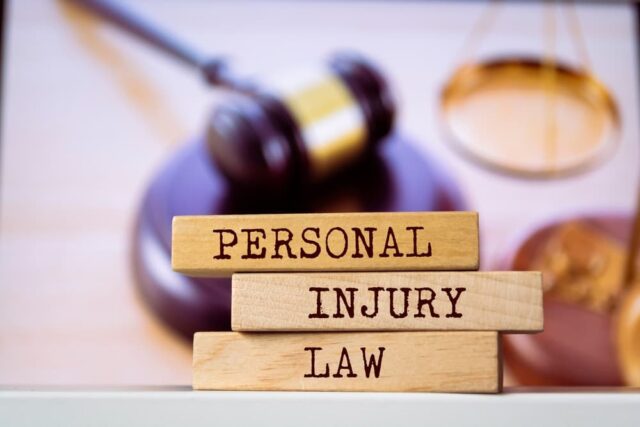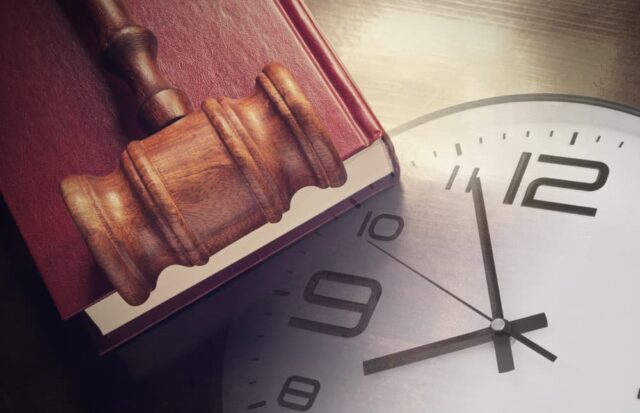When you or a loved one has suffered an injury due to someone else’s negligence, you have the right to seek legal representation to protect your rights and pursue the compensation you deserve.
Many people wonder whether their case warrants legal representation and, in most cases involving injuries, the answer is yes. Once you decide to hire a personal injury attorney, you must decide which one is right for your case.
Choosing the right Arkansas personal injury lawyer is a vital decision that can significantly impact the outcome of your case. You should ask many important questions when consulting with a personal injury lawyer to ensure you make an informed decision.
What is Personal Injury Law?
 Personal injury law covers a wide range of cases in which an individual has suffered physical or emotional harm due to the negligence or intentional actions of another party. Some common examples of personal injury cases include car accidents, slip and falls, medical malpractice, and product liability.
Personal injury law covers a wide range of cases in which an individual has suffered physical or emotional harm due to the negligence or intentional actions of another party. Some common examples of personal injury cases include car accidents, slip and falls, medical malpractice, and product liability.
Questions to Ask a Potential Personal Injury Lawyer
When you’ve suffered an injury due to someone else’s negligence, you may need a personal injury lawyer. But how do you choose the right lawyer to handle your case? What questions should you ask to ensure you make the best decision for your situation?
How Long Have You Been Practicing Personal Injury Law?
The experience of a personal injury lawyer can make a significant difference in the outcome of your case. While every lawyer has to start somewhere, choosing an attorney who has dedicated a substantial portion of their career to practicing personal injury law is generally advisable. By asking this question, you can gauge the depth of the lawyer’s experience and ensure they have the necessary skills to handle your case effectively.
Have You Handled Cases Similar to Mine Before?
Each personal injury case is unique, but it’s imperative to hire a lawyer who has experience handling cases similar to yours. Whether you were injured in a car accident or have suffered medical malpractice, knowing that your lawyer has dealt with similar cases can provide you with confidence and peace of mind. Ask the lawyer about their previous experience with cases like yours and inquire about the outcomes of those cases.
What are Your Professional Affiliations? Have You Received Any Awards or Recognitions?
A lawyer’s professional affiliations and recognition can provide further reassurance of their experience and dedication to their field. Ask if they are a member of any professional organizations related to personal injury law. Additionally, inquire about any awards or recognition they have received for their work in this field. It is also important to know if they stay updated on changes and developments in personal injury law to ensure they are well-informed.
How Will You Handle My Case?
Understanding how a personal injury lawyer plans to handle your case is essential for managing your expectations and ensuring effective communication throughout the legal process. Ask the lawyer to explain their approach to handling personal injury cases and how they will keep you informed about the progress of your case. Additionally, inquire about their availability to answer any questions or concerns that may arise.
What Issues or Difficulties Do You See with My Case?
In every personal injury claim, some unique challenges and complexities require careful consideration. A seasoned attorney can easily identify and discuss these aspects with you.
However, it’s not just about acknowledging the challenges; it’s about addressing them head-on. If a lawyer assures you that your case will proceed smoothly without any obstacles, it should raise a red flag. The legal landscape is anything but simple, and a trustworthy attorney with a proven track record will be transparent about potential hurdles.
A reputable personal injury attorney will candidly discuss the ins and outs of your case and offer realistic solutions.
What Is Your Fee Structure?
Personal injury lawyers typically work on a contingency fee basis, meaning they only collect a fee if they successfully recover compensation for you. However, fee structures may vary, and it’s necessary to clearly understand how much you will be responsible for in the event of a successful outcome. Ask the lawyer about their fee structure and any additional costs associated with your case, such as court fees or expert witness fees.
What Happens if I Lose? Will I be Responsible for any Case-Related Costs?
Every case incurs certain litigation costs, especially those tried in court. The longer your case continues, the more these expenses can accumulate. When discussing your case with a personal injury attorney, be sure to ask about their policy on handling these costs.
Regardless of the outcome, there will be expenses for filing fees, medical record retrieval, and other necessary clerical activities to advance your case. Some attorneys will charge you for these costs whether you win or lose, while others may not.
What Happens if My Case Goes to Trial? Will the Fees Change? Will You Take My Case to Trial Yourself?
Insurance companies aim to offer the lowest possible amount of financial compensation, hoping you’ll accept it quickly. While settling the case is generally in everyone’s best interest, if the insurance company refuses to settle or you’re unsatisfied with the settlement amount, your case may need to go to court.
Your attorney should be fully prepared to fight for maximum compensation for your case. They should be skilled in negotiating effectively with insurance adjusters to secure a fair settlement. Additionally, if your case goes to court, you must ensure your attorney can handle it competently.
In addition, you should be aware that if your case goes to court, the original contingency fee may increase. Make sure to ask your attorney for clarity on this matter.
How Many Cases Have You Won In Court?
If your lawyer receives a fair and reasonable settlement offer before your case goes to trial, extensive trial experience may not be necessary. However, if both parties can’t agree on a fair settlement amount, a jury trial might become inevitable. Establishing trust with your personal injury lawyer during this challenging time is crucial, ensuring they are prepared to fight for maximum compensation by preparing your case as if it will go to trial.
How Long Will It Take to Resolve My Case?
The length of time it takes to resolve a personal injury case can vary depending on various factors, including the details of your specific case and the cooperation of the opposing party. While an attorney cannot provide an exact timeline, experienced lawyers can give you an estimate based on their previous cases. Understanding the potential timeframe can help manage your expectations and give you an idea of what to expect.
Will You Handle My Case Personally, or Will It Be Assigned to Another Attorney?
In some law firms, cases may be assigned to different attorneys within the firm. You will want to clarify who will handle your case and whether you can expect to work directly with the attorney you are speaking with.
You will want to ensure that your legal representative can give your case the attention and care it deserves. Your initial consultation might be with a senior attorney at your local personal injury firm. However, this doesn’t necessarily mean they will be the ones closely managing your case.
When discussing your case, find out who will actually be handling it. Will it be a senior attorney, or will less experienced associates do most of the work? If it’s the latter, inquire about their qualifications, experience, and how they will be supervised.
Ultimately, you want peace of mind and confidence, knowing that the right lawyer is working on your case. Having direct contact with your lawyer can streamline the communication process and ensure that your concerns are addressed promptly.
How Will You Keep Me Updated on the Progress of My Case?
Will someone be available to take your calls? The attorney? A paralegal or a secretary? Communication is the cornerstone of any relationship, especially in a personal injury case. Some clients want to be involved in every step, while others are content with occasional updates. Everyone’s preferences are different.
Regardless of your preference, it’s important to get clarity from your attorney on your role in the process and what is expected of you. Whether you want a more active role with frequent meetings and phone calls or prefer to stay on the sidelines, ask what the relationship will look like if you decide to work together.
What’s My Role In The Lawsuit?
Before hiring a personal injury lawyer, you should understand their expectations of you. Some clients prefer to be very hands-on, attending depositions and other meetings. If this level of involvement is important to you, ensure your lawyer accommodates this preference, as some may not. Other injured parties prefer to let their lawyer handle the case while they remain on the sidelines. Make sure you and your personal injury lawyer have a clear understanding of your desired level of involvement and what your legal relationship will look like.
What Is the Potential Value of My Case?
While no attorney can guarantee a specific outcome or settlement amount, an experienced personal injury lawyer can evaluate the factors of your case and provide an estimated value based on their experience. Understanding the potential value of your case can help you make informed decisions throughout the legal process and assess whether an offered settlement is fair.
Can You Provide References from Previous Clients?
Seeking references from previous clients can provide insight into the lawyer’s reputation and level of client satisfaction. Ask the attorney if they can provide references and speak with former clients with similar cases. This will give you a sense of how the lawyer works, how they communicate, and the overall experience you can expect.
What is the Statute of Limitations for My Case?
 The statute of limitations refers to the time limit to file a lawsuit for your personal injury. Each state has its own specific statute of limitations, so it is vital to be aware of the particular timeframe that applies to your case.
The statute of limitations refers to the time limit to file a lawsuit for your personal injury. Each state has its own specific statute of limitations, so it is vital to be aware of the particular timeframe that applies to your case.
The statute of limitations is a legal concept that ensures cases are brought to court within a reasonable time frame. It serves several purposes, including protecting defendants from stale and unreliable evidence and encouraging plaintiffs to take prompt action. Failure to file a lawsuit within the statute of limitations can result in your case being dismissed and losing the opportunity to seek compensation for your injuries.
It is important to consult with a personal injury lawyer as soon as possible to determine the statute of limitations that applies to your case. An experienced attorney will be familiar with the laws in your state and can identify the timeframe within which you must take legal action. By seeking legal advice early on, you can ensure you do not miss the deadline and have the best chance of recovering the compensation you deserve.
What Should I Do if My Child is a Personal Injury Victim?
If your child was in an accident, there are a few key things to understand. First, as a parent or legal guardian, you are entitled to file a personal injury claim on behalf of your child. Second, the time limits that apply to standard cases may not apply to incidents involving children, and these time limits can be longer than you expect. Be sure to consult with an attorney to understand your legal rights and the specific time limits for filing a claim in your child’s case.
Meet with an Experienced Personal Injury Lawyer Today
Remember, asking the right questions can help you find the best personal injury lawyer to handle your case and secure the compensation you deserve.
If you or a loved one has suffered an injury, seek the help of an experienced personal injury lawyer. Personal injury attorneys are dedicated to helping injury victims and their families through the legal process and obtain the compensation they deserve. Don’t face the challenges alone – reach out to an attorney today for a free consultation.

